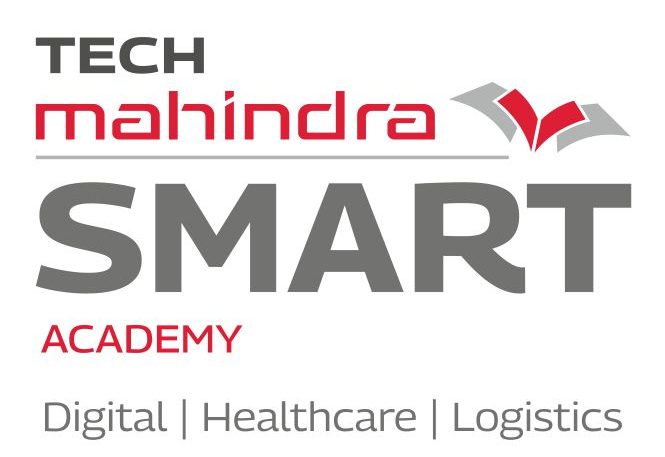Medical Records is an emerging department in the healthcare industry which is the brain of a hospital. The department stores all the information of current and former patients of the hospital. Well-maintained medical records unquestionably help doctors and hospitals in their defence in cases of medical negligence. Healthcare professionals spend lots of their working hours on papers, documents, and standard procedures. Gone are the days of running down to a damp basement to find a pile of paper files when a patient comes through the doors of a physician’s office. Electronic medical record technology has revolutionized the way patient records are recorded and processed.
Let us understand the recent advancements in this upcoming field:
1. Automated Chatbots and Voice Messages: Chatbots are conversational software that is available either via standalone apps or web applications. These conversational agents mimic human speech to simulate a human conversation. As health services become patient-centric, offering personalized and satisfactory experience is of utmost priority for healthcare providers.
Timing is extremely important in healthcare. With the help of a medical chatbot, patients receive immediate assistance at the touch of their fingertips as reminders especially for older patients, chatbots are also very important in an emergency situation.
Practical Applications
- Voice assistants act as the first point of contact between the patient and the doctor
- Many users prefer messaging than calling. On this front, chatbot’s are exceptionally helpful. Currently, many healthcare systems use chatbot’s to answer customer inquiries on websites and social media platforms like Facebook
- With the help of chatbot, it is easy to track patient health record and analyse the data with a clinical application that helps the clinicians for diagnosis, treatment, and more

2. AR and VR in Healthcare: AR and VR are the key enablers of technology advances in healthcare. AR & VR technologies in healthcare offer feasible solutions to many challenges of the healthcare system it offers numerous diverse opportunities of its implementations in various areas such as general diagnostics.
The easiest way in which augmented reality can fit into the healthcare system is through visualizing patient data with a possibility of live stats. Patients with chronic health issues are able to sit in the comfort of their homes and monitor their health. If the patient needs help or quick administration of medicine, a doctor can perform a VR walkthrough showing the patient how they can manage or administer the medicine himself. AR is also used to make certain tasks more efficient, such as superimposing patient records and vital signs in real-time while a doctor is assessing a patient.
3. Cloud Computing: Cloud computing is a new model of delivering computing resources and not a new technology. Cloud computing is well known in the maintenance and administrative tasks of the infrastructure of many healthcare organizations. It has the capacity to share files like – medical records, medical history, bill payments, and various treatments for administering better healthcare.
Practical Applications
- Information regarding the patient’s medical history, allergies, the treatment offered and various other essential factors are readily available to doctors when a patient visits the healthcare facility
- With the help of cloud computing, sharing of information is easy between medical professionals and a patient located remotely to offer an accurate diagnosis and treatment
Despite the many benefits associated with using cloud computing, there are also numbers of issues they are as follows:
- Security and Privacy issues: It is believed that data security and privacy are the major concerns to the adoption of cloud computing in health IT. Cloud computing is a shared resource and multi-tenancy environment for capacity, storage, and network. The data may be vulnerable to other cloud users
- Data Jurisdiction issues: In a cloud, physical storages could be widely distributed across multiple jurisdictions. Different jurisdictions may have different laws regarding data security, privacy, usage, and intellectual property which restricts organisations from disclosing patient’s health data to non-affiliated third parties
- Loss of Data Governance issues: It is the main concern when the user’s confidential data and mission-critical applications move to a cloud computing paradigm where providers cannot guarantee the effectiveness of their security
4. Electronic Health Records (EHR): An Electronic Health Record (EHR) allows the patient and their doctor to have permanent access to patient data, e.g. diagnostics, chronic diseases, cardiac waveforms, and previous prescriptions. It helps improve the interaction between the doctor and patient for more productive delivery of care. An EHR reduces the number of papers a patient has to bring with him when visiting the doctor. Moreover, various healthcare providers have easy access to a patient’s medical information through a shared EHR, which is supported by a mobile app.
Practical Applications
- The entire process of charting, categorizing and documenting patient’s information is easy
- The interaction between the doctors and other health departments is improved with its implementation
5. Portal technology: Patients are increasingly becoming active players in their own healthcare, portal technology is one tool helping them to do so. Portal technology allows physicians and patients to access medical records and interact online. This type of technology allows patients to become more closely involved and better educated about their care. In addition to increasing access and availability of medical information, portal technology can be a source of empowerment and responsibility for patients. “It’s powerful because a patient can be an extraordinary ally in their care, they can become an active participant.”
6. Blockchain and Future Healthcare Technology: Blockchain solves the problem of accessibility, portability, and integrity of information in a complex environment. There’s always a risk to lose or compromise medical records stored in clinics’ databases. Blockchain has the potential to challenge the status quo; a patient can decide who is going to have access to their record. It is completely transparent as to who has access to the records and in what way they are used.
Blockchain systems in healthcare prove efficient when a patient is travelling to another country. When health intervention is needed urgently, doctors can access medical records fast, without having the patient to provide the information orally.
Conclusion
Healthcare managers and professionals are looking for strategies to make health information management efficient, flexible and cost-effective. The healthcare domain in developing countries like India has started utilising the latest emerging technologies. A large volume of data is collected, stored, processed and retrieved in patients’ digital data like – Electronic Health Records, it consists of images of patients which are of high-security concern. It includes patient’s private data consisting of scanned images/reports, x-rays images, pathological reports etc. Availability of these records during every visit to the hospital thus improves the quality of treatment. However, security for a large volume of data with efficiency is required as data of the patients are confidential in nature.

